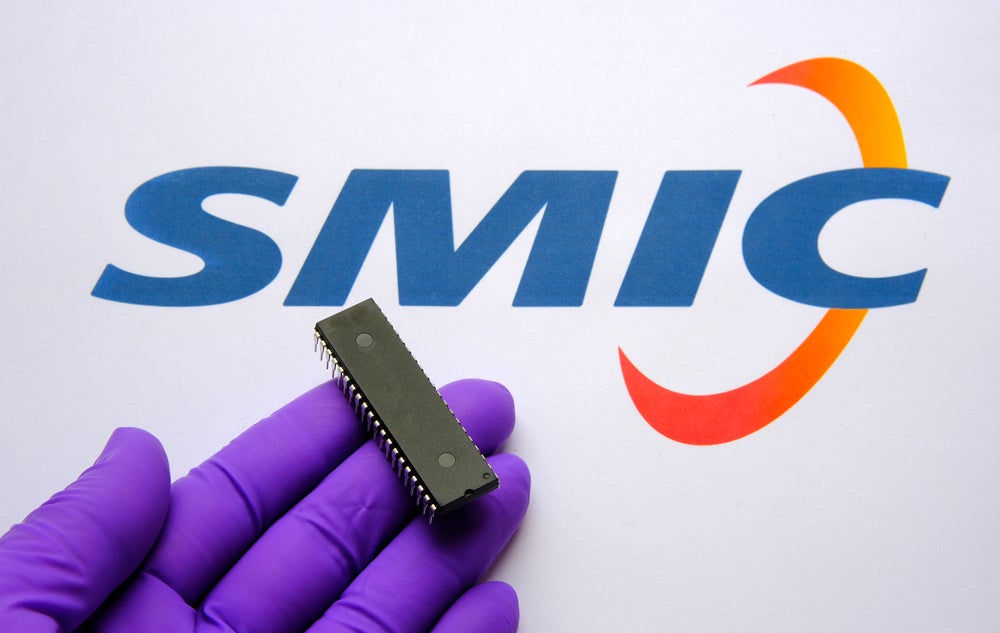
The US Defense Department is reportedly planning to plug loopholes that have allowed Semiconductor Manufacturing International Corporation (SMIC), the largest contract chipmaker in China, to circumvent trade restrictions and access key American technology.
But some Commerce Department officials are trying to block the Defense Department’s proposal because it could harm US companies, the Wall Street Journal reported, citing people familiar with the matter.

Access deeper industry intelligence
Experience unmatched clarity with a single platform that combines unique data, AI, and human expertise.
The Commerce Department had previously said it promotes US exports to benefit American companies and workers and that trade disputes with China should not overshadow the cost of national and economic security.
Shanghai-based chip maker SMIC was added to the Commerce Department’s Entity List last year – a US trade blacklist that denies companies access to crucial manufacturing equipment from American suppliers. These restrictions were put in place because Washington alleges that SMIC has ties to the Chinese military, a claim the company rejects.
Despite these restrictions, SMIC has still been able to acquire items of manufacturing equipment used to make semiconductors. Under the current regulations, SMIC is prohibited from purchasing “uniquely necessary” US equipment required to manufacture 10-nanometre (nm) chips or smaller.
Since different manufacturing equipment can be used to produce circuits in various sizes, exporters took this wording to mean that they could still sell equipment that could be adjusted to make smaller chips. Therefore, the restrictions “effectively became language that has no meaning,” one of the people told the Journal.

US Tariffs are shifting - will you react or anticipate?
Don’t let policy changes catch you off guard. Stay proactive with real-time data and expert analysis.
By GlobalDataAs a result, the National Security Council, with support from the Defense Department, State and Energy Departments, wants to amend the wording to restrict SMIC from accessing equipment capable of making 14nm chips or smaller.
Recently, the US government has become more rigorous in its approach towards Chinese semiconductor manufacturers and designers. According to the Wall Street Journal, US officials are also considering adding more Chinese technology firms to the Entity List and to the Treasury list banning US investment.
The Chinese artificial intelligence (AI) company, SenseTime, has been the latest victim of Washington action. Already on the Entity List, the company now seems likely to be added to the Treasury list banning the company from receiving funds from American investors.
Amid the ongoing tensions between China and the US and against the backdrop of a global chip shortage, SMIC is one of China’s best hopes of reaching technological self-sufficiency, a goal that is at the top of President Xi Jinping’s agenda.
Despite the trade restrictions, the company has been rapidly expanding its manufacturing capacity to keep up with China’s rising demand for semiconductors. In the quarter ended in September, SMIC posted a revenue increase of 31% to US$1.42bn, compared to US$1.39bn predicted by analysts.
Its advanced FinFet 14nm and 28nm chips accounted for 18.2% of its total revenue, up from 14.6% in the same period last year. However its more mature 55nm and 65nm processes remain the biggest revenue winners. These are also the production areas least hampered by the US trade bans.
The company has, however, recently experienced some internal turmoil. Within the span of two months, the company lost two top executives. Chiang Shang-Yi, the company’s recent vice-chairman, announced in November that he would step down from the role. In September, Zhou Zixue announced that he would relinquish his position as chairman for health reasons.
The company has manufacturing facilities in Shanghai, Beijing, Tianjin, Shenzhen and Jiangyin.
SMIC currently ranks 49th on GlobalData’s thematic scorecard for semiconductors. It is being held back mostly due to its poor performance in areas such as geopolitics and digital media. According to GlobalData, its response to the Covid-19 pandemic and its slow uptake of artificial intelligence has also caused the company to fall behind.







